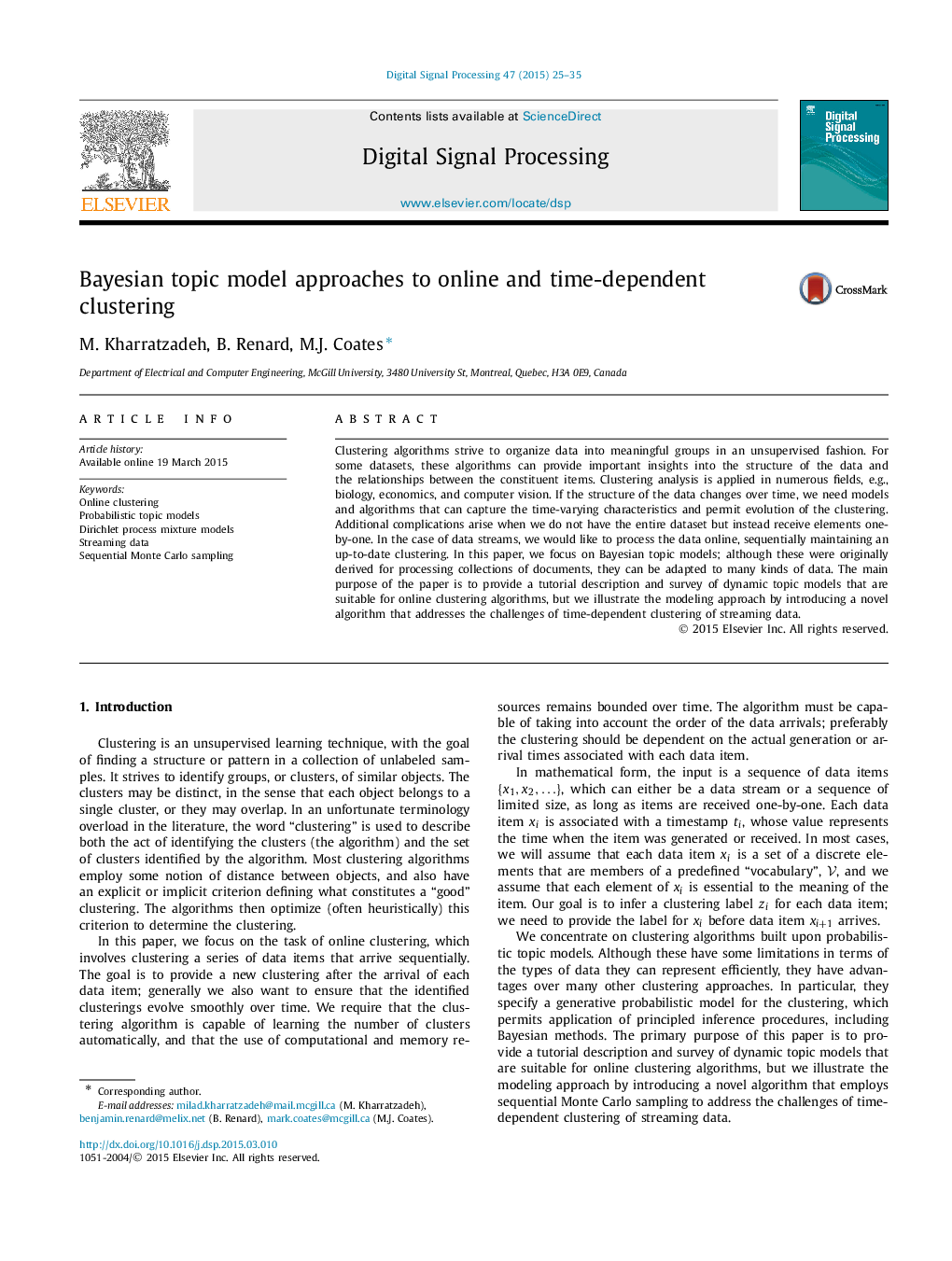| Article ID | Journal | Published Year | Pages | File Type |
|---|---|---|---|---|
| 560188 | Digital Signal Processing | 2015 | 11 Pages |
Clustering algorithms strive to organize data into meaningful groups in an unsupervised fashion. For some datasets, these algorithms can provide important insights into the structure of the data and the relationships between the constituent items. Clustering analysis is applied in numerous fields, e.g., biology, economics, and computer vision. If the structure of the data changes over time, we need models and algorithms that can capture the time-varying characteristics and permit evolution of the clustering. Additional complications arise when we do not have the entire dataset but instead receive elements one-by-one. In the case of data streams, we would like to process the data online, sequentially maintaining an up-to-date clustering. In this paper, we focus on Bayesian topic models; although these were originally derived for processing collections of documents, they can be adapted to many kinds of data. The main purpose of the paper is to provide a tutorial description and survey of dynamic topic models that are suitable for online clustering algorithms, but we illustrate the modeling approach by introducing a novel algorithm that addresses the challenges of time-dependent clustering of streaming data.
